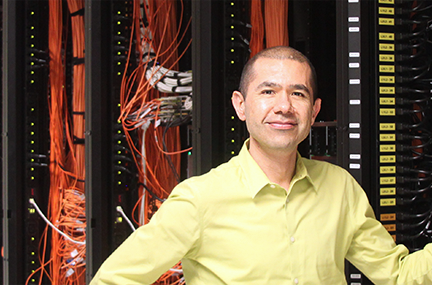Abstract
Scientific discovery is increasingly enabled by heterogeneous hardware that includes multiple processor types, deep memory hierarchies, and heterogeneous memories. To effectively utilize this hardware, computational scientists must compose their applications using a combination of programming models, middleware, and runtime systems. Since these systems are often designed in isolation from each other, their concurrent execution often results in resource contention and interference, which limits application performance and scalability. This problem adds to the already complex interactions between multiple physics libraries and emerging machine learning components in scientific applications. Consequently, real-world applications face numerous challenges on heterogeneous machines.
In this talk, I will present our runtime system strategy to address these challenges. It includes two components: (1) mpibind: A robust, memory-driven framework to map parallel applications to the underlying architecture transparently from the point of view of applications, and (2) Quo Vadis: An interface to help hybrid applications make efficient use of heterogeneous hardware, ease programmability in the presence of multiple programming abstractions, and enable portability across systems. Both components abstract out low-level details of the hardware and present an architecture-independent interface applications can use to leverage local resources automatically and without user intervention. I will also present a skeleton multi-physics application with Quo Vadis to demonstrate how the challenges described above can be met in a portable way across systems and with a small effort from application writers.
 Short Bio
Short BioEdgar Leon is a computer scientist at Lawrence Livermore National Laboratory (LLNL) and a senior member of the Institute of Electrical and Electronics Engineers (IEEE). He leads Supercomputing research and development to enable high-performance, productivity, and portability of scientific applications in support of the missions of the U.S. Department of Energy. Prior to LLNL, Edgar worked at IBM Research and Sandia National Laboratories. He holds a Ph.D. in Computer Science from the University of New Mexico and is an avid contributor to High-Performance Computing.

